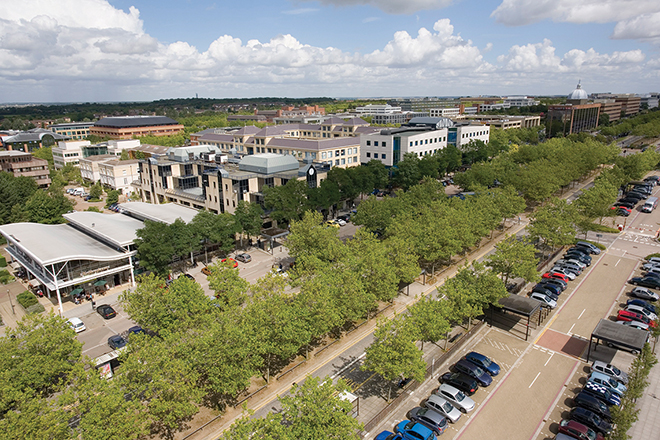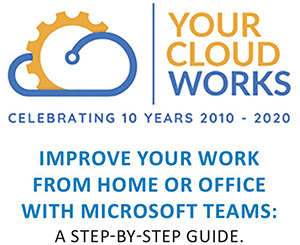Coronavirus upheaval leaves a legacy of uncertainty, a heavy impact on the economy and growth expectations at a record low, a major research project finds.
Sponsored Article
THE MAJORITY of UK mid-market businesses have made fundamental changes to their business model during the pandemic, with 50 per cent also planning to continue with the new model going forward. That’s according to new research from Grant Thornton’s International Business Report, which explores the impact of Covid-19 on businesses in the UK and across the world.
The IBR data for the first half of 2020 shows that changes made by UK mid-market businesses have been wide-ranging and include:
- 42% have adjusted their business strategy;
- Almost half (49%) have implemented home or flexible working;
- More than a third (34%) have reduced capacity or closed/suspended operations;
- Over a third (34%) have had to make redundancies, introduce pay cuts, introduce unpaid holiday, or make use of the government’s furlough scheme.
Financial support measures have been a lifeline for the UK mid-market. As government now starts to move into the second phase of its economic response to the virus, the survey found that the financial support measures to support the country through the pandemic so far have been vital, with over a third of respondents (35%) using, or planning to use, government grants.
The Coronavirus Job Retention Scheme was ranked as the most beneficial measure. But with the Chancellor of the Exchequer, Rishi Sunak, confirming that the CJRS will definitely end by October this year and the new Job Retention Bonus only providing support through to January, the research finds that one in four UK companies still need to access new funding, cut costs and restructure, in order to continue trading.
Mid-market growth expectations are at a record low as uncertainty and economic impact of pandemic hit. Less than a third (31%) of UK companies feel optimistic about the outlook of the country’s economy over the next 12 months; a stark 15 percentage point drop from the second half of 2019 and a significantly lower result than the global average, (43%).
This fall in optimism is also impacting revenue expectations with less than a third of UK companies (32%) expecting to see an increase over the next 12 months. That represents a 21 percentage point drop compared to H2 2019 and the lowest level recorded by the IBR since it launched in 2011. On average, UK firms expect revenues to fall by 11% in 2020 due to COVID-19.
Economic uncertainty was cited as the biggest constraint to growth for the UK mid-market (70%). A shortage of orders (51%) and a shortage of finance (45%) were also highly ranked, both increasing in significance since the second half of 2019 by +12 and +11 percentage points respectively.
Business strategies are set for a revamp as businesses start to plan for market recovery. The research found that many companies are also looking to make specific changes to their business strategies after Covid-19, as the pandemic has highlighted areas for improvement.
Digital transformation was ranked top, with 48% of UK companies anticipating they will need to make more use of technology despite an expected drop in investment recorded in this area (-10 percentage points since H2 2019). This was followed by changes to improve their organisational flexibility (41%), improve their crisis management process (36%) and build more resilience in their supply chains (33%).
Despite the ongoing uncertainty, many UK mid-market businesses are now starting to look ahead and prepare for market recovery. Over half (54%) of the companies surveyed have started to plan for their workplace safety in the future, compared to only 47% globally. A third (35%) have also started to plan different scenarios for the scale-up of their company operations.
In times of crisis, innovation is rife
Grant Thornton practice leader Giles Mullins assesses the IBR’s findings. Now is a critical moment, he says, but while there is challenge, there is also opportunity.
THE CORONAVIRUS pandemic has meant businesses around the world are continuing to face a myriad of issues affecting every aspect of their company, from their people to their customers and suppliers and their fundamental business operations.
The support made available to companies over the last few months has been critical to keeping the economy and many companies afloat. But we know this support cannot last forever.
The new measures announced by the Chancellor in his economic update may provide further temporary support for those affected by furlough and hard-hit businesses in the hospitality and tourism sectors but questions remain around the longer-term impact and how much further support will be needed.

The impact of the pandemic has been stark and with so many continued unknowns, combined with Brexit, it is unsurprising to see that business optimism and growth expectations have dropped significantly.
But while there is challenge there is also opportunity. In times of crisis, innovation is rife and many organisations have seen rapid change during the pandemic, as necessity has removed barriers to transformation efforts.
The importance of technology has proved paramount in enabling businesses to remain connected with their people and their stakeholders and in opening up new commercial opportunities.
Now is a critical moment for businesses, as lockdown continues to ease and more companies start to reopen, to decide how they want their business and their people to operate and work moving forward. And for many, this may not be a return to the ‘old normal’, as our research has found a continued fundamental shift in the business models of the UK mid-market.
Volatile times call for real-time understanding of where your business is at, a focus on building business resilience and the courage to take action supported by clear and informed decision-making.
While businesses still need to focus on the immediate pressures of today, it is encouraging to see that many are also starting to plan for tomorrow by considering how to safely return to the workplace, updating their business strategy to ensure it reflects their new priorities and determining how best to scale up their company operations.
Agility and resilience will be critical to success as we move into the next few months. Businesses will need to continue to be open to doing things differently and embedding any new successful workplace practices to ensure survival and growth post the pandemic.
Giles Mullins is practice leader at Grant Thornton in Milton Keynes.
e: giles.m.mullins@uk.gt.com





